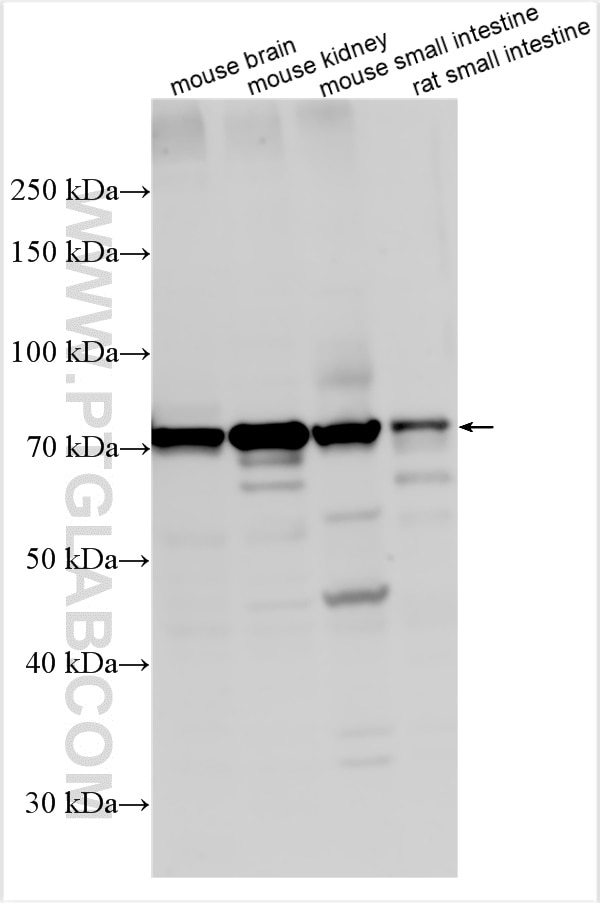Tested Applications
| Positive WB detected in | mouse brain tissue, mouse kidney tissue, mouse small intestine mouse small intestine, rat small intestine rat small intestine |
Recommended dilution
| Application | Dilution |
|---|---|
| Western Blot (WB) | WB : 1:1000-1:4000 |
| It is recommended that this reagent should be titrated in each testing system to obtain optimal results. | |
| Sample-dependent, Check data in validation data gallery. | |
Product Information
29230-1-AP targets CLCN7 in WB, ELISA applications and shows reactivity with human samples.
| Tested Reactivity | human |
| Host / Isotype | Rabbit / IgG |
| Class | Polyclonal |
| Type | Antibody |
| Immunogen | CLCN7 fusion protein Ag29882 Predict reactive species |
| Full Name | chloride channel 7 |
| Calculated Molecular Weight | 805 aa, 89 kDa |
| Observed Molecular Weight | 70 kDa |
| GenBank Accession Number | BC012737 |
| Gene Symbol | CLCN7 |
| Gene ID (NCBI) | 1186 |
| RRID | AB_3669678 |
| Conjugate | Unconjugated |
| Form | Liquid |
| Purification Method | Antigen affinity purification |
| UNIPROT ID | P51798 |
| Storage Buffer | PBS with 0.02% sodium azide and 50% glycerol , pH 7.3 |
| Storage Conditions | Store at -20°C. Stable for one year after shipment. Aliquoting is unnecessary for -20oC storage. 20ul sizes contain 0.1% BSA. |
Background Information
The intracellular CLC chloride channel family members ClC-3, ClC-4, and ClC-5 have been proposed as the primary endosomal chloride conductance providers. ClC-7 is expressed in late endosomes and lysosomes, but there is disagreement in the literature regarding its contribution to acidification. More recently, the cystic fibrosis (CF) transmembrane conductance regulator chloride channel (CFTR) was proposed as the specific counter-ion conductance necessary for lysosomal acidification in alveolar macrophages. (PMID: 20566682)
Protocols
| Product Specific Protocols | |
|---|---|
| WB protocol for CLCN7 antibody 29230-1-AP | Download protocol |
| Standard Protocols | |
|---|---|
| Click here to view our Standard Protocols |



